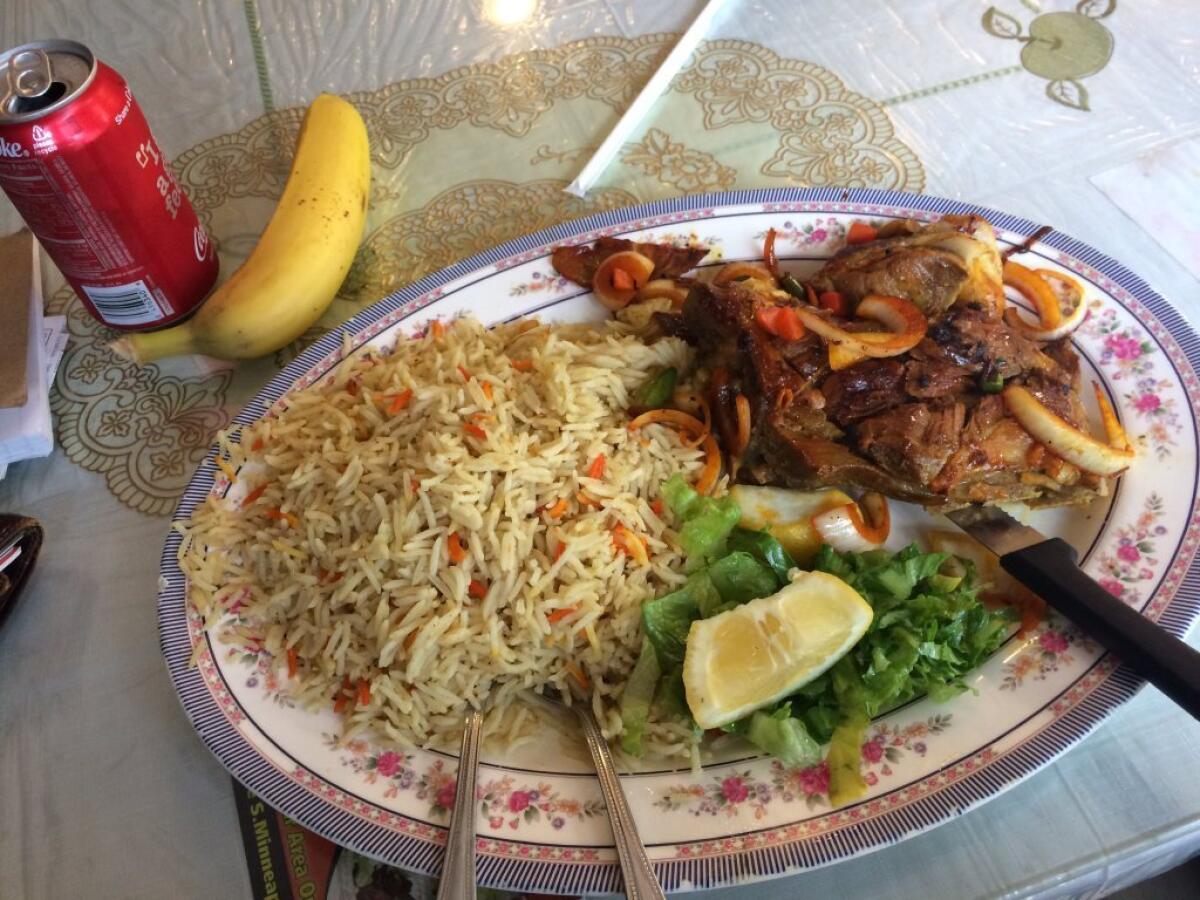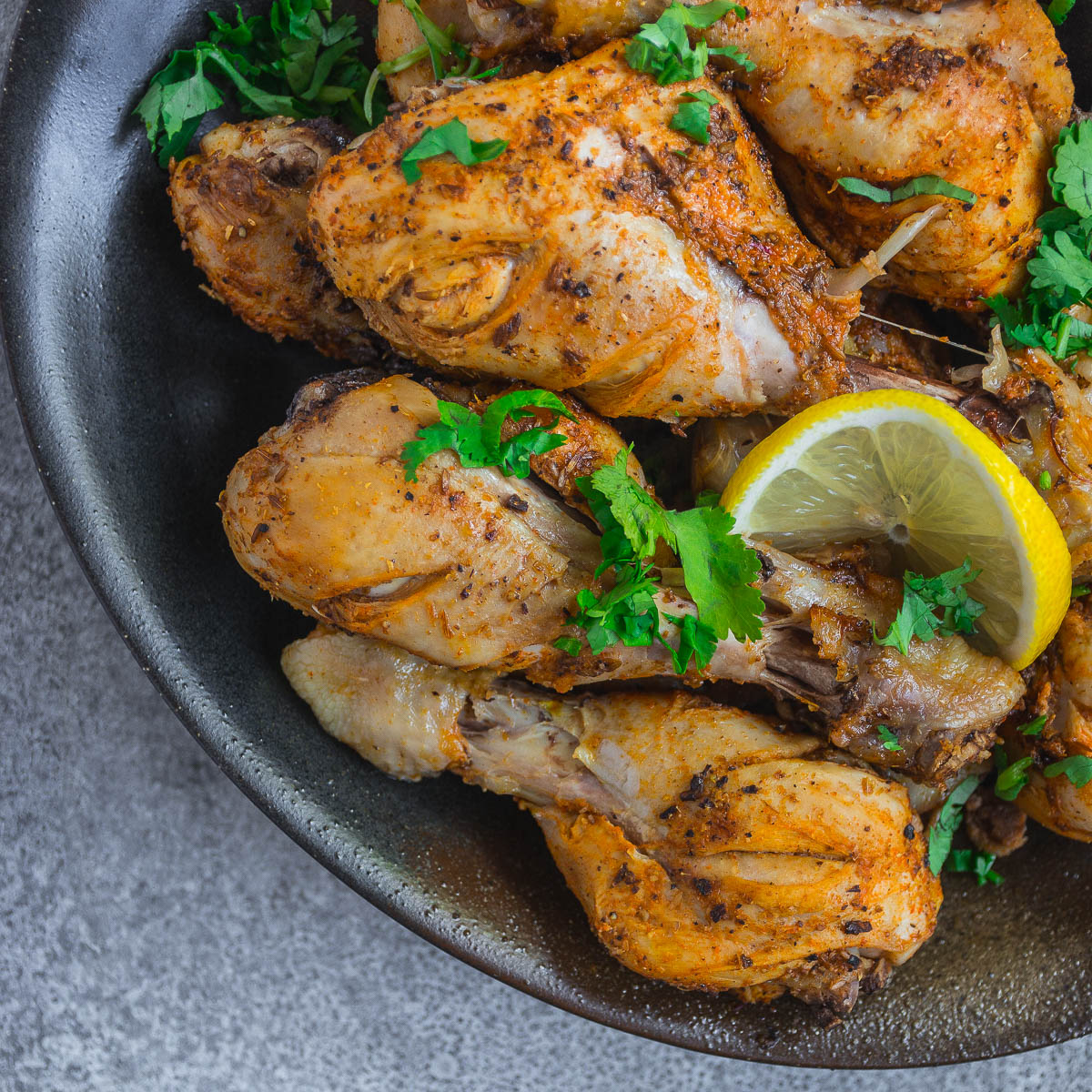Genuine Somali Food: From Spices to Savory Delights, Study Culinary Bliss
Wiki Article
From Staple Dishes to Exotic Specializeds: Deciphering the Diverse and Vibrant World of Somali Food

Conventional Somali Staples
If you intend to experience authentic Somali food, you have to often enjoy standard Somali staples. These staples develop the foundation of Somali food preparation and display the rich social heritage of the Somali people. One such staple is the popular flatbread referred to as "injera." Made from a fermented batter of teff flour, injera is a versatile and crucial part of Somali meals. It is frequently utilized as a tool to scoop up stews and sauces, including a special texture and flavor per bite.One more staple is "baasto," a flavorful pasta meal that is typically enjoyed in Somali families. Baasto is normally made with pastas or linguine noodles, prepared up until tender and afterwards combined with a fragrant sauce made from tomatoes, onions, garlic, and a mix of typical Somali flavors (Somali food). This meal is often offered with a side of maraq, a delightfully spiced broth that adds depth and complexity to the meal
Lastly, "bariis" or rice is a staple that is deeply embedded in Somali cuisine. Bariis is frequently cooked with fragrant spices such as cardamom, cinnamon, and cloves, giving it a fascinating aroma and preference. It is commonly offered with a selection of meat or veggie stews, developing a enjoyable and passionate dish.
Flavors From the Sea: Somali Seafood Delicacies

One preferred fish and shellfish delicacy is Isku-dheh karis, a velvety curry made with fish, coconut milk, and a medley of spices. The recipe is usually served with aromatic basmati rice or a flatbread called injera. One more preferred is Muqmad, a dried out fish recipe that is commonly appreciated as a snack or made use of as a component in other dishes. The fish is healed with salt and spices, giving it a a little zesty and full-flavored taste.
Lahoh with maraq is a traditional Somali pancake served with an abundant fish and shellfish stew. The pancake is soft and mushy, while the stew is made with a combination of shellfishes, fish, and veggies, simmered in a tasty broth. This meal is a real representation of the seaside flavors discovered in Somali cuisine.
Whether it's barbequed lobster, spicy shrimp curry, or zesty calamari, Somali seafood specials are a must-try for any type of fish and shellfish enthusiast. The freshness of the active ingredients, incorporated with the aromatic flavors, produce a symphony of flavors that will certainly deliver your taste to the shores of Somalia. Don't miss the opportunity to appreciate the sea's plentiful prizes when exploring Somali cuisine.
Exotic Spices and Fragrant Herbs
Discover the tantalizing variety of tastes in Somali food with the use of a remarkable variety of exotic seasonings and aromatic natural herbs. Somali food is known for its strong and lively tastes, and these spices and natural herbs play a critical function in producing the distinctive preference that sets Somali food apart.Among the most typically made use of seasonings in Somali cooking is cumin. Its natural and cozy taste adds deepness to meals like rice, stews, and meat prep work. Somali food. Turmeric, with its dynamic yellow color and mild taste, is an additional staple in Somali food. It is used to boost the taste and appearance of rice, soups, and meat dishes.
Cardamom, a great smelling flavor with a tip of citrus, is also extensively utilized in Somali cooking. It adds a fragrant and one-of-a-kind touch to both pleasant and full-flavored recipes. Various other popular seasonings include cinnamon, cloves, and coriander, which are made use of to add warmth and intricacy to different recipes.
Aromatic herbs like cilantro, mint, and parsley are additionally crucial active ingredients in Somali food. They are used to garnish recipes, imparting quality and a ruptured of flavor. These herbs are usually included to sauces, salads, and meat meals, boosting the total taste and fragrance.
With making use of these aromatic herbs and unique flavors, Somali cuisine provides a alluring and absolutely unique dining experience. The mix of flavors develops a harmonious equilibrium that is both gratifying and remarkable. Whether you're enjoying a conventional Somali stew or a flavorful rice recipe, the herbs and spices made use of in Somali cooking are certain to leave a long-term perception he said on your taste.
Influences From Arab, Indian, and European Cuisines
Arab, Indian, and European cuisines have actually dramatically influenced the lively and varied globe of Somali food. Over the centuries, Somalia's tactical area on the Indian Ocean profession courses has actually enabled an abundant exchange of cultural and cooking practices with bordering Arab and Indian areas, in addition to European colonial powers. These communications have left a long lasting influence on the Somali cooking landscape, causing a fusion of tastes and methods that make Somali cuisine really special.
Among the most significant impacts can be seen in the substantial usage of seasonings in Somali food preparation. Arab and Indian flavors such as cumin, coriander, cardamom, cinnamon, and cloves are generally used to add depth and intricacy to Somali recipes. The intro of these flavors has not just improved the tastes however has likewise added to the vivid and fragrant nature of Somali cuisine.
European impacts can be traced back to the colonial age when Somalia was under the control of different European powers, consisting of the Portuguese, British, and Italians. These early american interactions brought cooking approaches and brand-new active ingredients to Somalia. For instance, pasta dishes like "baasto" (Somali pasta) and "sabayad" (a Somali flatbread) are clear examples of Italian influence.
Commemorating Food in Somali Society
1. Commemorating food is an indispensable part of Somali society, where festive gatherings and common meals are valued practices. Food plays a main function in bringing people with each other, fostering a feeling of neighborhood and connection. Whether it's a wedding event, a spiritual holiday, or a simple household gathering, Somali individuals take immense pride in their food and utilize it as a means to celebrate and reveal their cultural identity.
In enhancement to the scrumptious food, the act of sharing a dish is deeply significant in Somali culture. It symbolizes friendliness, kindness, and the importance of neighborhood. Somali food. Taking a seat together, typically on a mat or a common platter, and eating fosters a feeling of unity and reinforces bonds between family and buddies
Furthermore, food is also a means to bear in mind and honor enjoyed ones who have actually passed away. Throughout unique occasions, such as the Islamic holiday of Eid al-Fitr, Somalis prepare typical sugary foods called xalwo as a way of commemorating their ancestors and maintaining their memory alive.
Conclusion
With a selection of seafood delicacies, aromatic herbs, and seasonings from Arab, Indian, and European cuisines, Somali food is a celebration of practices and tastes. Whether you're exploring the staple dishes visit their website or venturing right into you could try these out the globe of unique specialties, Somali food is sure to entice your preference buds.If you want to experience genuine Somali food, you should regularly delight in typical Somali staples.To genuinely submerse on your own in the diverse and lively globe of Somali food, you must often delight in the elegant flavors of Somali seafood specials. Whether you're appreciating a typical Somali stew or a flavorful rice dish, the spices and natural herbs used in Somali food preparation are sure to leave a lasting perception on your preference buds.
These communications have left an enduring influence on the Somali cooking landscape, resulting in a combination of flavors and methods that make Somali cuisine absolutely one-of-a-kind.
Pasta recipes like "baasto" (Somali pasta) and "sabayad" (a Somali flatbread) are clear instances of Italian impact.
Report this wiki page